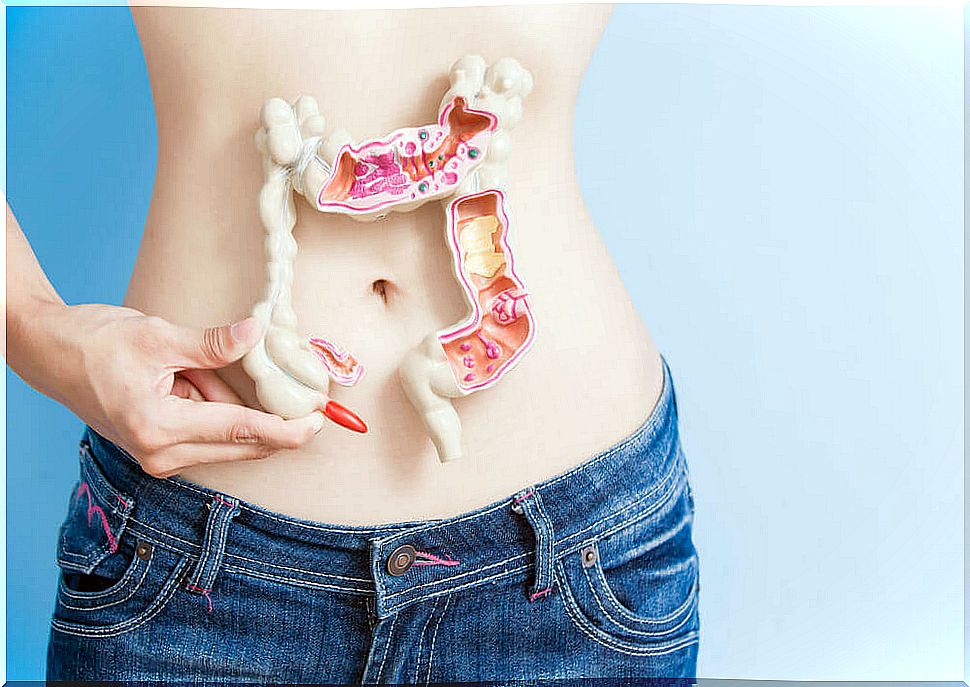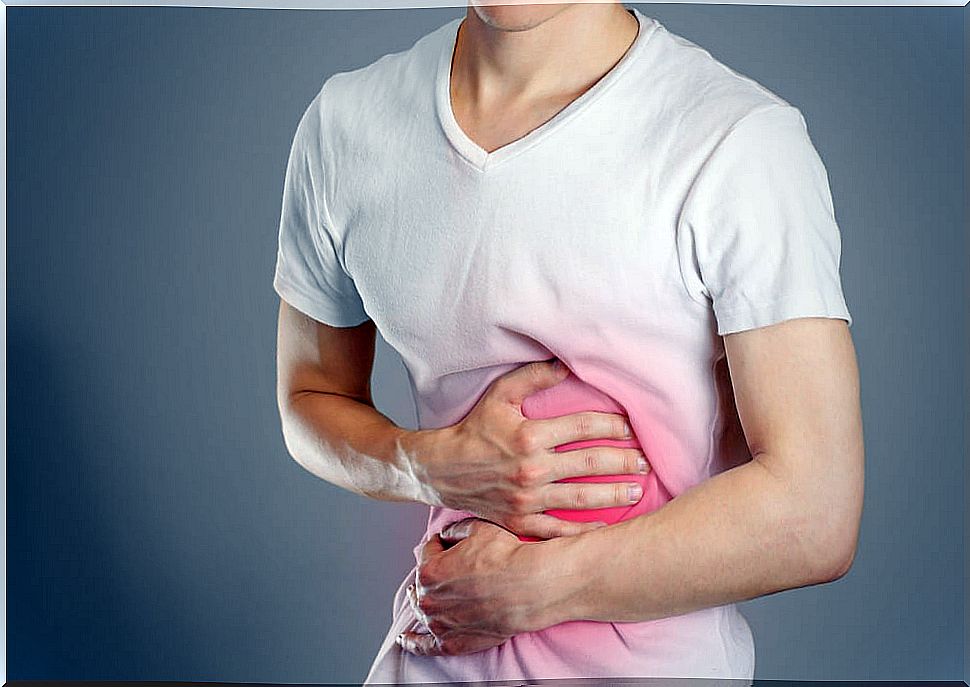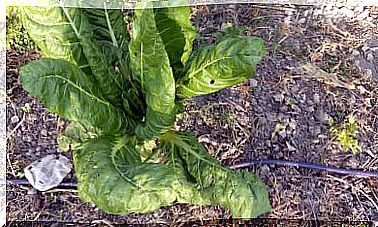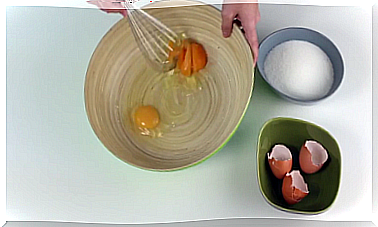6 Signs That Your Gut Is Sick
The intestine is a visceral organ located at the level of the abdomen, between the stomach and the rectum. This is part of the digestive system and is divided into two large portions.
The main parts of the intestine are the large intestine and the small intestine. Although they make up the same body and fulfill similar functions, there are important differences between the two.
The objective of this organ is focused on absorbing food. Most of them are degraded in the small intestine; the result is absorbed by epithelial cells, is then directed to the bloodstream and is distributed throughout the rest of the body through it.
This process culminates in the large intestine, which synthesizes the food bolus and absorbs mineral salts and water to convert it into fecal matter, which is subsequently expelled.
The intestine: important and fragile
Bowel disorders are more common than you think; These are often associated with digestive problems, although they can cause other symptoms as well. The easiest way to locate them is by evaluating the discomfort relative to the area where the intestine is located.
Pains in the abdomen, an upset stomach and bloating are the main indicators. However, there are other types of signs, less common, responsible for betraying diseases or problems in the intestine.

Symptoms to find out that your intestine is sick
These are some of the symptoms that can help you to intuit that something is wrong with your intestine and that it may be necessary to consult as soon as possible.
Please note that the information provided here is in no way a substitute for medical diagnosis. Therefore, when in doubt, it is best to go to the professional as soon as possible and follow all their instructions.
Sugar anxiety
When consuming sweets and other sugary substances, the bacterial groups that reside in the intestine suffer from various imbalances. A 2008 research published in the Annual Review of Nutrition accounts for these alternative routes of intestinal absorption.
The problem with this is that, at first, when perceiving the desire for this component, it is consumed in a normal way, but with the passage of time, excessive anxiety appears.
Although this relationship between sugar consumption and anxiety is still under investigation, it is known that it is possible to develop an addiction to sweetened foods, especially processed foods. This is detailed in a study published in Current Opinion in Clinical Nutrition and Metabolic Care .
Uncontrolled ingesting sugar can cause a number of health problems ; one of the best known is being overweight. As detailed in a study published in Critical Reviews in Clinical Laboratory Sciences , this can be accompanied by other problems that lead to cardiovascular disease or diabetes.
Psychological problems

It is normal to feel ‘butterflies’ or other reactions in the stomach when experiencing anxiety, nerves and other emotions. Indeed, studies have shown that the gut-brain relationship is bidirectional, as detailed in one published in Progress in Neuro-psychopharmacology & Biological Psychiatry .
Thus, psychological problems such as depression, stress and anxiety can be signs of a deficiency in the intestine. This is due, in part, to the action of serotonin.
Serotonin is a neurotransmitter responsible for producing well-being, tranquility and happiness in the body. This chemical is produced in the gut and brain, as explained in a study published in Frontiers in Neuroscience . For this reason, the state of mind can tell how the organ is .
Excess glucose
One of the main intestinal functions is the synthesis of food, including sugar. If there is a deficiency, excess glucose raises the sugar content in the blood and leads to diseases such as diabetes. In addition, metabolic processes are also altered and the energy transformation cycle can fail.
Affected skin
When the skin tissue has acne and other types of eczema, it can be a sign of imbalance in the intestine. A study published in Gut Pathogens suggests that intestinal problems can alter the function of the epidermal barrier. However, it is not yet defined how this relationship occurs or how important the interference of intestinal health in the appearance of acne is.
Despite these inconclusive questions, the cited research states that there is “enough evidence” to link the condition of the skin to that of the intestines. With this, certain conditions such as acne, psoriasis, rosacea or skin irritations can be related to the intestine.
Digestive instability

Problems associated with digestion are perhaps the main sign that something is wrong in the gut. It all starts with gas, bloating and diarrhea, caused by the alteration in the bacteria responsible for protecting the intestine.
The imbalance in the intestinal flora is caused by the agglomeration of harmful substances, which make the nutritional absorption of most foods impossible. As an article published in Acta Médica Peruana describes , this can lead to irritable bowel syndrome.
Halitosis
Linked to digestive deficiency, stomach function can be disrupted by bacterial imbalance in the intestine. A study published in the Journal of Natural Science, Biology and Medicine found that gastrointestinal problems can also lead to halitosis.
Taking care of the intestine is protecting the whole body
From what has been explained above, it is clear that the health of the intestine and the entire digestive system in general is linked to the well-being of the rest of the body. Of course, all this is very important, so it is advisable to have healthy habits and eat a balanced diet.
Finally, it is important to reiterate that medical diagnosis is essential in any of the situations mentioned above. If you suffer from any of these symptoms, consult your professional.









